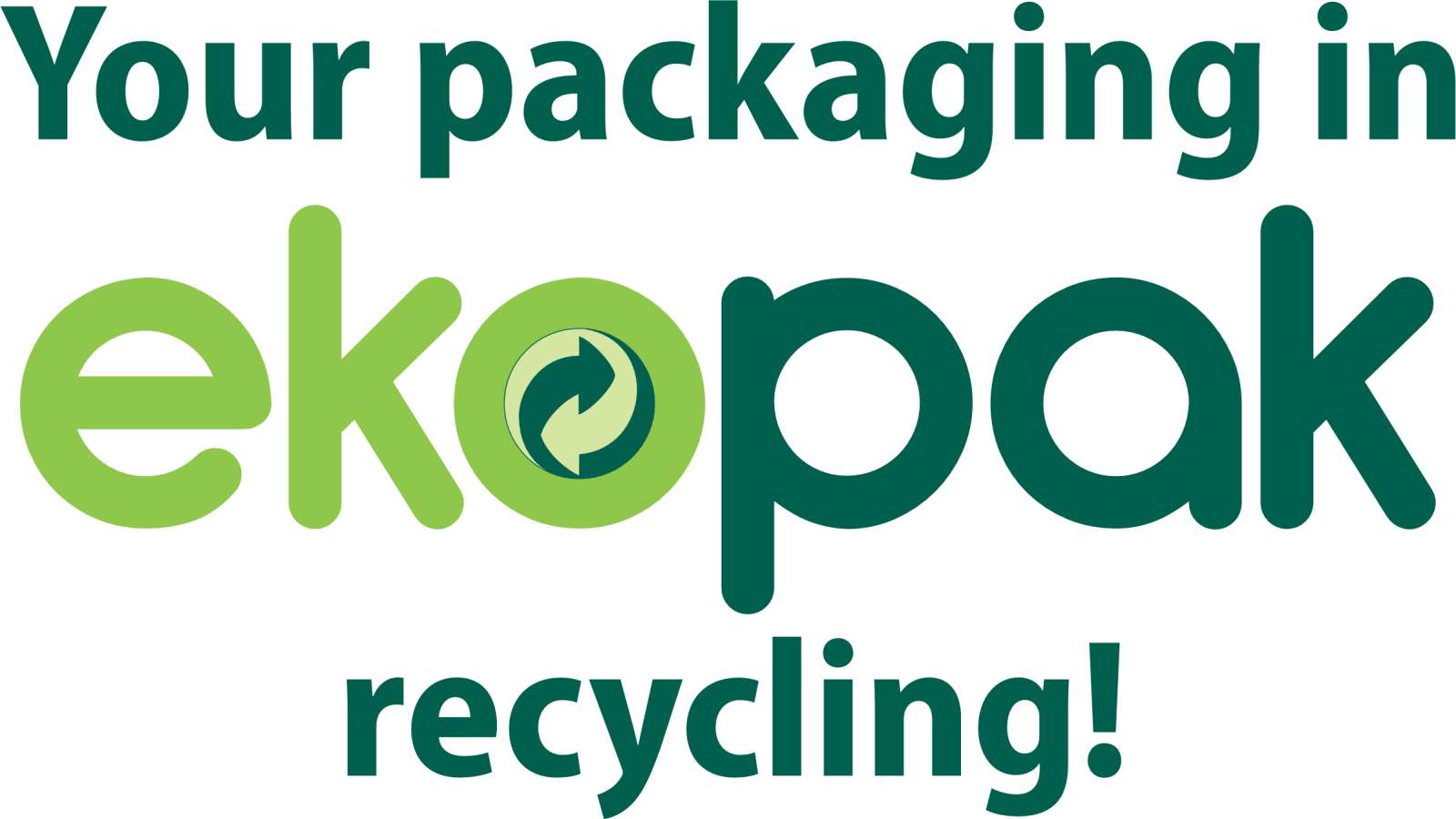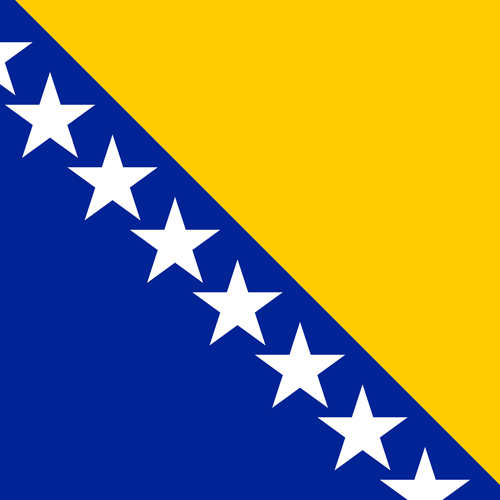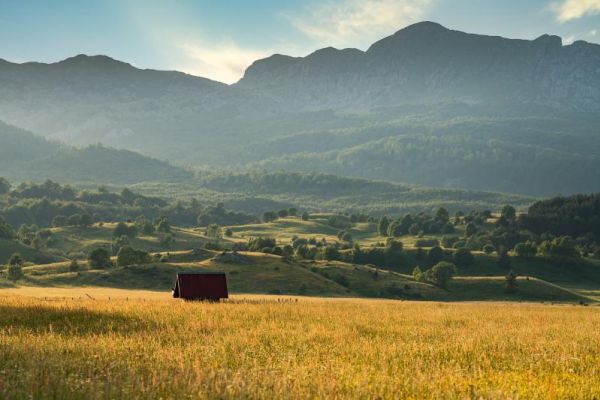Projects
Ekopak participated in the development of the Strategy and Action plan for Bosnia and Herzegovina (BiH ESAP 2030+)
In April 2021, we shared an article introducing some of the diverse experts who contribute to the process of developing the environmental strategy and action plan for Bosnia and Herzegovina (BiH ESAP 2030+).
Now, after finishing the fourth round of working group meetings that aimed to discuss the measures for each of the defined objectives in the action plans, we met again with some of the working group members. They kindly shared their experience with participating in developing the ESAP document and gave some insights into what they foresee as the most important measures to be implemented in terms of their thematic areas.
Firstly, we talked to Mr. Zoran Bibanović, who is contributing with his expertise to the Biodiversity working group on the BiH state level.

Photo: Zoran Bibanović on the Prenj mountain. Along with other nearby mountains, this mountain was called the Bosnian Alps by former Austrian naturalists. Courtesy of Mr. Zoran Bibanović.
Which organization or stakeholder group do you represent in the working group?
In the working group for BiH state level (biodiversity and nature conservation) I represent the tourism sector, more specifically the Association of Travel Agencies in Bosnia and Herzegovina (UTA BiH), which are interested in environmental topics by the very nature of their work.
How come you became a member of this working group in the ESAP project?
I received a letter from the coordinator of activities around ESAP, in which they invited us to nominate representatives of the tourism sector for all jurisdictions (BiH, FBiH, RS and BD), to participate in working groups in areas which are of major interest for the tourism sector. In response to this invitation, I accepted to participate in the working group on biodiversity and nature conservation.
What did you find most interesting/beneficial during this round of meetings?
I find the comparative analysis of European experience in environmental protection most interesting, especially concerning natural resources, which are fundamental for what we can offer in the tourism sector. Natural resources of Bosnia and Herzegovina merit international recognition. Unfortunately, while other countries of Ex-Yugoslavia were amongst the first countries which signed various conventions, Bosnia and Herzegovina cannot rely on this tradition and experience in these areas.
According to you, what is the most important measure to be implemented in terms of your thematic area?
The previous policy of biodiversity and natural values conservation was not adequate, more specifically it is not in compliance with the European practice. I believe that we need to conduct a comparative analysis of European experience and systemically address the environmental challenges. One such challenge is the canyon of the Miljacka River in Sarajevo. Downstream, the canyon which is in the territory of FBiH and the Sarajevo Canton is protected within the national cultural monument Bentbaša, while upstream, in the territory of RS and the Municipality of Pale, this canyon is spoiled with new quarries and construction of small HPPs and other business and non-business buildings. This destroyed a unique entrance to a big city (Sarajevo) from the East, characterised by an abrupt transformation of the surroundings from entirely preserved nature which has not changed for millions of years into a downtown area.
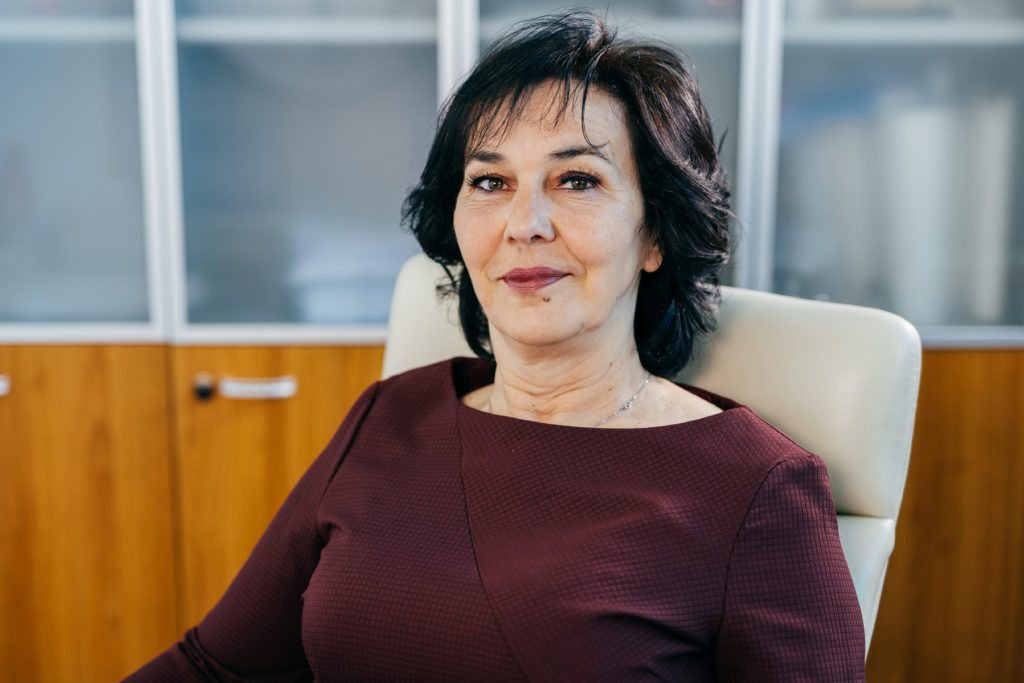
Photo: Ljiljana Stanišljević member of two WGs on RS level. Courtesy of BiH ESAP 2030+ project
We also contacted Ms. Ljiljana Stanišljević who is member of the Environmental management working group and Sustainable resources management group, at the level of Republika Srpska. She is also an observer of the Environmental management WG on BiH level.
Which organization or stakeholder group do you represent in the working group?
I was nominated together with my colleagues from the environment sector, and I represent the Ministry of Spatial Planning, Civil Engineering and Ecology of Republika Srpska, the institution responsible for environmental protection in Republika Srpska, which is also responsible for adoption of the Environmental Strategy. Given that the Project Document envisages development of a BiH ESAP 2030+ within this project, I am a member/observer of the working group on environmental management and on sustainable resource management.
When the thematic working groups for development of the ESAP were formed, I coordinated activities between the institutions whose representatives were appointed to the working groups and the ESAP team in Sarajevo.
I am also a contact person in this Ministry for strategic impact assessment for the RS ESAP.
How come you became a member of the working group in the BiH ESAP project?
When I was appointed to the working group for the development of the RS ESAP and BiH ESAP, I had a longstanding experience from the environmental sector in general, and I had participated in multiple other activities connected to environmental projects which are being implemented or were implemented in the territory of BiH. I believe that an active engagement together with other colleagues from the environment protection sector can significantly contribute to the implementation of this important project, especially because the Environmental Strategy will comprise an air quality strategy, nature conservation strategy and waste management strategy.
What did you find most interesting/beneficial during this round of meetings?
The fourth round of the meetings for Republika Srpska, and before that for BiH, held in May this year saw increased activities in the preparation of the action plans for all these thematic groups in both jurisdictions. Indeed, the activities of this cycle of the meetings focused on identifying and defining measures and activities for previously defined objectives in the action plans. In certain areas the working groups also briefly addressed next phases of the action plan development, including designation of responsible institutions for the implementation of measures and the way in which the measures will be implemented within the target timelines. The participation of the nominated members is particularly important in some thematic groups, because the defining of measures and activities also entails the obligation of their implementation within the timelines specified in the action plans.
In the context of the above activities, I would like to thank the whole ESAP team, as well as thematic group experts, for organising the working group meetings in these difficult and challenging circumstances caused by the COVID-19 pandemic. Their technical assistance enabled us to hold regular online meeting despite the adverse circumstances. The number of members nominated to the seven working groups makes this challenge even more difficult.
According to you, what is the most important measure to be implemented in terms of your thematic area?
It’s difficult to single out the most important measure in any thematic area, because each of these areas are essential for the environment. However, as a member of the WG on sustainable resource management and the WG on environmental management for Republika Srpska, I believe it is essential to finalise activities which will ultimately be transformed into the environmental strategy of Republika Srpska, including the action plan. The challenge faced by the group focusing on sustainable resource management is significant, taking into account that this group addresses the management of a wide range of activities for each of the resources.
As a member of the group on environmental management, I believe that only adequately defined objectives and measures in this area can create a strategic framework for environmental protection as such. This framework will be crucial for the implementation of projects and funding of activities aimed at environmental management and the environment.
Finally, I should say that Republika Srpska has great expectations of this project, because it did not have a strategic framework for environmental protection in the past. Development of the environmental strategy of Republika Srpska and the action plan for the implementation of the strategy will define and steer environmental management objectives towards principles of sustainable development in accordance with the overall development of Republika Srpska in the long term.
At the level of FBiH we turned to Ms. Amela Hrbat. She is a member of the Waste management working group.
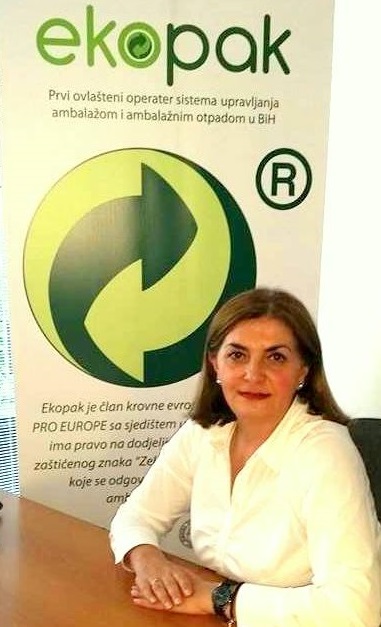
Photo: Ms. Amela Hrbat, member of the Waste management working group on FBiH level. Courtesy of Ms. Amela Hrbat.
Which organization or stakeholder group do you represent in the working group?
I represent Ekopak, the first licensed packaging recovery organisation in Bosnia and Herzegovina. Ekopak is operational since 2012 and successfully fulfilling recycling and recovery targets prescribed by Federal Ministry of Environment and Tourism, in spite of a lot of challenges in the country.
How come you became a member of this working group in the BiH ESAP project?
Working Group leads engaged in this project invited Ekopak to participate and, of course, we accepted the opportunity to take a part in preparation of this important document.
What did you find most interesting/beneficial during this round of meetings?
It is always interesting to hear different stakeholders, positions and experiences, but also to align all discussions and wishes in a feasible document. I truly believe that, as final result, we can get a very good strategy that will be used by different stakeholders involved in waste management in BiH in the coming years.
According to you, what is the most important measure to be implemented in terms of your thematic area?
It is really important to set up a realistic waste management strategy that will be used as the framework for legal acts definition on different levels of the state, including packaging waste management, the area where Ekopak belongs. It is not necessary just to transpose recycling and recovery targets defined in the EU Packaging and Packaging Waste Directive in our local laws. Unfortunately, the status of Bosnia and Herzegovina on our long way to EU membership still does not require it. On the other hand, we have enough time to develop the system gradually and to transpose requirements in a smart manner, according to our local possibilities: take into consideration the social, economic and environmental circumstances of the country.
We expect that BiH ESAP 2030+ will help harmonise the transposition of EU provisions in national legislation, while acknowledging national specificities, set up recommendations on how to implement a number of aspects relating to EPR (Extended Producer Responsibility) from the Waste Directives (Waste Framework and Packaging and Packaging Waste Directives), and achieve best environmental performance with lowest costs. This includes participation of consumers, industry, authorities, and needs to allow synergies between the entities. EPR is worldwide identified as one of the key pillars to achieve a circular economy for packaging and supported by all leadings business associations, but also by NGOs and other associations.
This intent should be clearly reflected in the final BiH Environmental Strategy and Action Plan.
Next steps
Working group round 4 of meetings is completed but developing a new environmental strategy and action plan for Bosnia and Herzegovina continues. During the upcoming summer months, there will be several Policy Group (Assistant Minister level) meetings held. The Policy Groups are formed at each jurisdiction level, and they are aiming to review action plans, provide clarifications and guidance to working groups for further development of action plans. During the meetings, the groups will also discuss practical issues related to the ESAP, such as cost allocation, the setting of indicators, how to approach GESEP issues in the measures, and how to consider interlinkages between different thematic areas.
The Steering Board (Minister level) meeting is another important milestone to take place in mid-summer. The board involves representatives from the governments in the four jurisdictions, the donor to the project as well as the members of the EU delegation to BiH. They will discuss the progress of BiH ESAP preparations and the next steps in its development.
The fifth round of the working group meetings is planned for Autumn 2021, where the working group members will gather and discuss the prioritisation of measures and any input from the Policy Group meetings and Steering Board.
SOURCE: esap.ba
